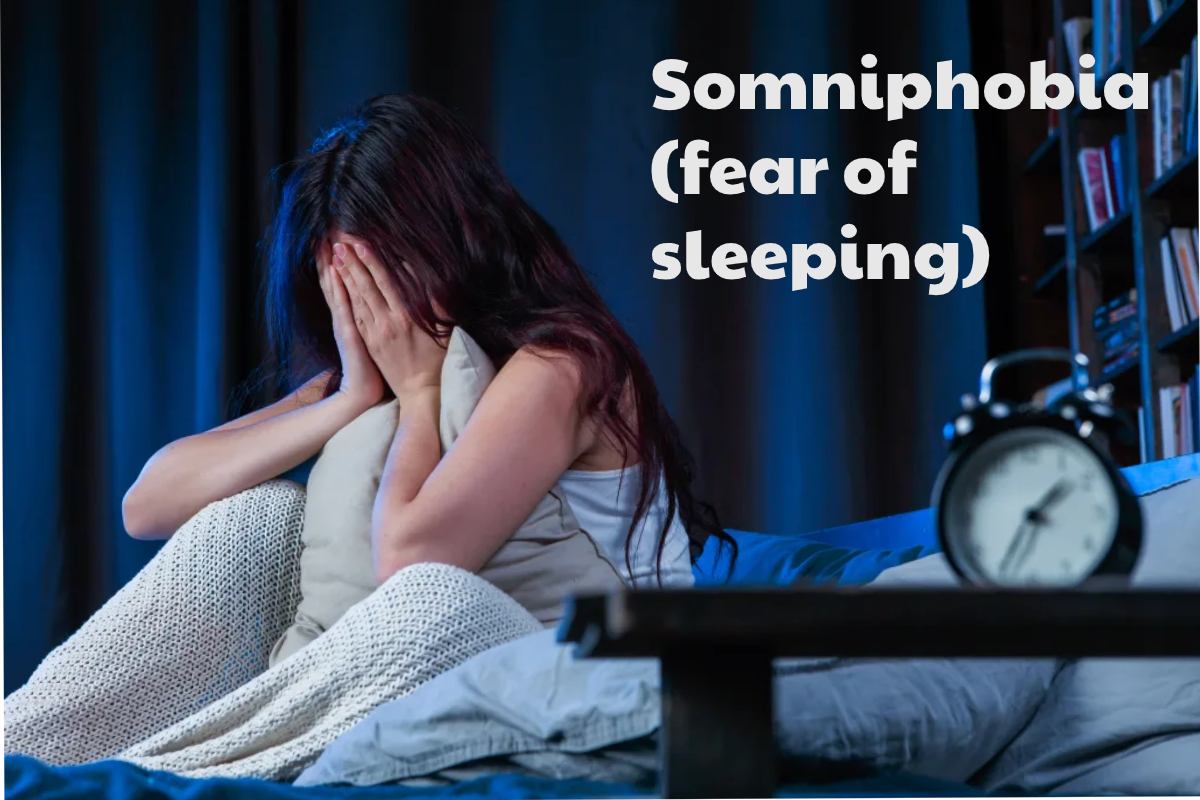Table of Contents
What is Somniphobia?
Somniphobia (additionally called hypnophobia, clinophobia, worry of sleep, or sleep tension) is a lesser-regarded precise phobia that is a generalized fear of sleep. This circumstance is like a pass among generalized anxiety, insomnia, and unique phobias. Since sleep is important for our wellness, this can result in other physical or psychological illnesses.
Somniphobia (fear of sleeping): signs and symptoms, treatments and how to cope with it
Somniphobia, also called sleep anxiety, refers to the immoderate enjoy of fear or dread around the act of going to sleep. Often a outcome of insomnia, somniphobia reasons stimulating mind and feelings that disrupt day by day sports. People with somniphobia also can experience sleep disturbances such as hallucinations, sleep paralysis, and nightmares. These problems exacerbate emotions of anxiety and dread.
If you’re fearful of going to sleep at night and would like to talk with a therapist approximately how this phobia affects you and your lifestyles, click here. Answer a few simple questions, and a Therapy Choice Client Navigator will assist you locate an experienced and caring therapist who is dedicated for your well-being. Getting started is easy and personal.
Common symptoms of somniphobia are:
Feeling more distress at nighttime
Experiencing panic attacks
Feeling lightheaded
Chest pains
Fear of dying or losing control
Abdominal pain
Nausea
Headaches
The essential symptoms of somniphobia are worry, dread, or panic approximately what would possibly happen whilst you sleep. Unlike insomnia, which refers to problems falling asleep or staying asleep, human beings with somniphobia regularly have hassle dozing because of their fears. As the day techniques bedtime, the painful signs and symptoms generally intensify. To have a calm night of relaxation.” Find a word that feels optimistic with out being totally unrealistic.
Treatment for Fear of Sleeping
Practicing these self-help strategies could make a big distinction on your sleep pleasant. Keep in mind that these techniques take time, consistency, and dedication. However, that may not be enough. If you don’t notice improvement or your body symptoms have worsened, it’s worth seeking professional treatment. Fortunately, many options can help, including different types of therapy, eye movement desensitization and reworking (EMDR), and medications.
Therapy
A qualified therapist can help you understand the triggers of sleep anxiety. They may also work with you to discuss healthier coping strategies for managing symptoms. Finally, your therapist will establish a treatment plan to help you sleep better and establish greater wellbeing.
Desensitization
Experience therapy is an evidence-based treatment that helps people deal with their phobias gradually and safely.7 For example, you can start by taking a short nap with a trusted professional or loved one. Eventually, you will work to sleep through the night.
When dealing with somniphobia, your therapist will probable establish a fear hierarchy as well, allowing you to rank your sleep-associated fears from least terrifying to most terrifying.
Cognitive Behavioral Therapy (CBT)
CBT is a well-known remedy that works on the belief that thoughts, emotions, and behaviors are interconnected. Ideally, by way of getting to know to change your bad mind approximately sleep, you’ll experience fewer painful signs and symptoms. Using a CBT technique, your therapist can inspire techniques together with tracking your emotions before and after relaxation, revolutionary muscle rest and hard your cognitive distortions (i.E., analyzing evidence related to your fears).
Eye Movement Desensitization and Processing (EMDR)
EMDR is a manualized schooling technique for trauma remedy. Because many people with somniphobia also meet the criteria for PTSD (or have a history of trauma), this can help reduce the severity of symptoms. A therapist will help you identify your goal (distressing memory) and inspire you to share. At the same time, engage in a series of bilateral stimulations. Over time, this process supports you in desensitizing yourself to the traumatic material.
Drug
If you suspect that you have somniphobia, talk to your doctor or psychiatrist about potential drugs such as sedatives. Sleep medications also with symptoms related to insomnia, as they help sleepiness. However, remember that you have to continually seek advice from your medical doctor before starting any medications. In addition, those medicinal drugs should simplest be used for quick durations, as many can be addictive.
Common sleep medications include:
environment
trazodone
Sonata
Doxepin
They may also prescribe psychiatric medications such as antidepressants (Prozac, Lexapro, Zoloft) or anti-anxiety medications (such as Klonopin or Xanax). While these medications do not act directly on the symptoms of somniphobia, they can reduce symptoms that can exacerbate sleep problems. Your prescription will depend on your specific sleep condition, any co-morbid conditions (depression, anxiety, insomnia, etc.), and your history with medications.
How to get help with the fear of sleep
Finding the right therapist is the first phase in overcoming the fear of sleep. While all therapists must have in-depth training and expertise, it is vital to find someone to help you feel safe and comfortable. Begin your search by looking through a directory. Each clinician will list their specialties, rates, and years of experience.
It is wise to understand the presentation problem when you contact a therapist. What is causing you the most distress right now? Also, what goals do you hope to achieve? Remember that sustainable results take time. It is normal to do a few sessions before you feel that you are making progress.
Final thoughts on the fear of sleep
Somniphobia is a kind of phobia characterised by using an immoderate and irrational fear of snoozing.
Somniphobia is undoubtedly a challenging condition; however, you are not alone in your experience. Practicing the proper techniques and participating in the appropriate forms of treatment can help you. Get through this struggle. Then, it is possible to experience a restful night’s sleep. Contact a healthcare professional for support today.2024-06-28

